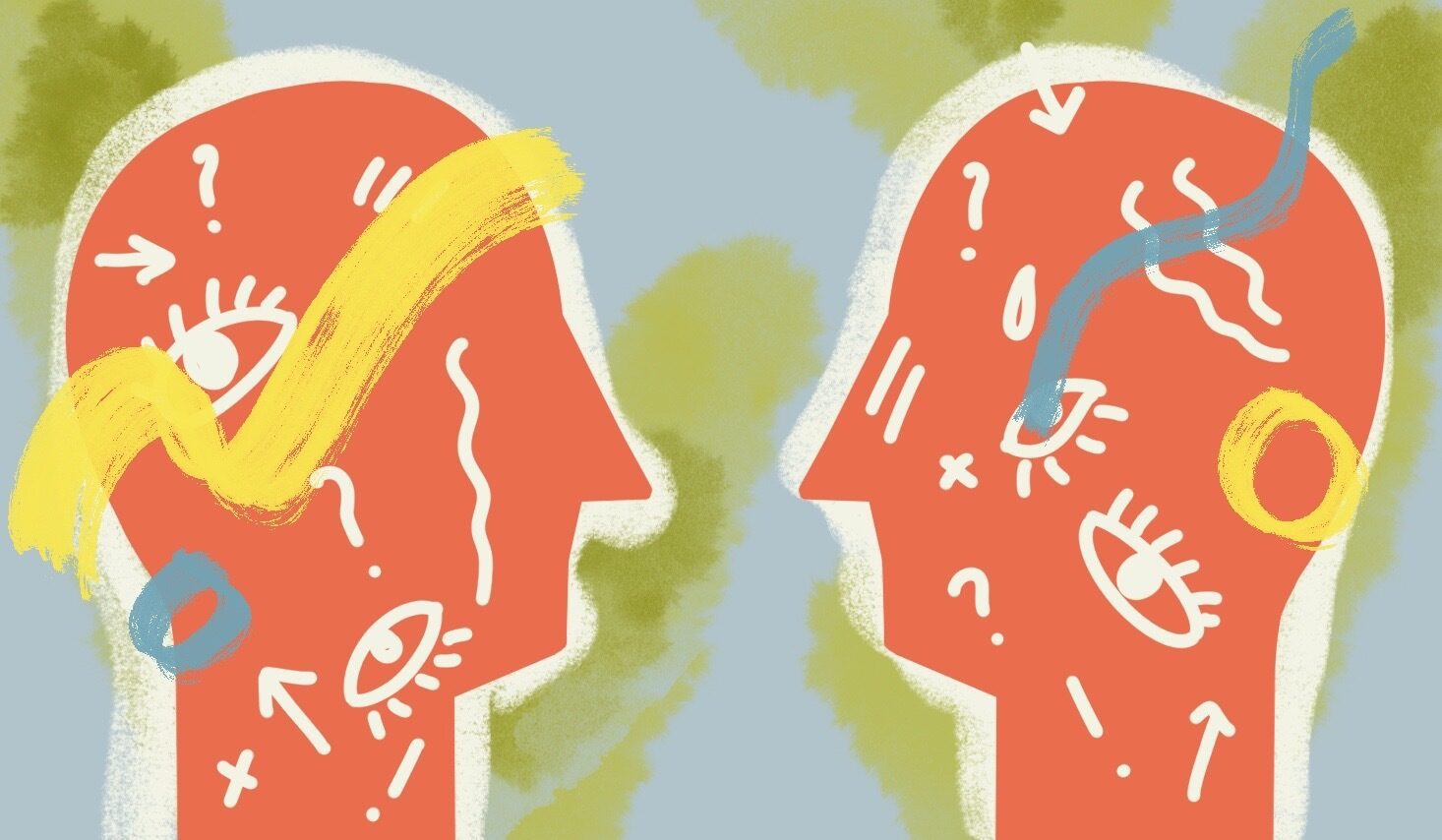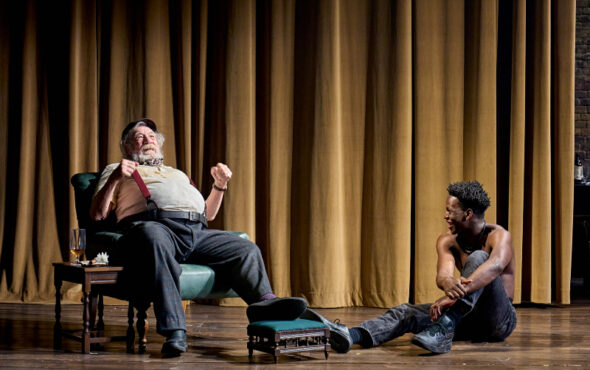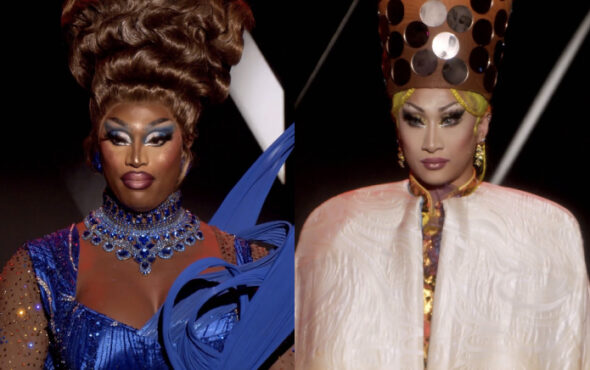
Within the LGBTQ+ community, there are many big topic conversations and understanding the nuances of these can feel overwhelming. So, we have established our GAY TIMES LGBTQ+ 101 section for readers (both LGBTQ+ and non-LGBTQ+) to use as a working guide when looking for accessible, jargon-free information on the LGBTQ+ community, our history and key subjects areas that affect us. This entry will be focused on proving our audience with a brief overview of the horrific damage so-called ‘conversion therapy’ has caused to our community.
Please note, this is a content warning that reading about ‘conversion therapy’ may be triggering for some and this guide will include details of what ‘conversion therapy’ entails and more.
What is ‘conversion therapy’?
‘Conversion therapy’ is a dehumanising practice used to change an individual’s sexual orientation or gender identity. ‘Conversion therapy’ also falls under the bracket of ‘cure therapy’ and ‘reparative therapy’. These techniques are harmful and can include various forms such as pseudo-psychological treatments, spiritual counselling and electronic shock ‘therapy’.
The barbaric practice of ‘conversion therapy’ tragically occurs across the globe. It is still legal for LGBTQ+ people to be subjected to ‘conversion therapy’ in the UK. However, there has been a growing consensus to ban the practice. Germany, New Zealand, Albania, France and regional areas of the US have implemented bans. Argentina, Uruguay, Samoa, Fiji and Naura also observe indirect bans.
In the UK, the ongoing push to have ‘conversion therapy’ banned is a priority as practices are allowed to continue. The UK’s 2017 National LGBT Survey, a self-report survey of over 108,000 people, revealed that five per cent of respondents said they had been offered conversion in an attempt to “cure” them of being lesbian, gay, bisexual, and transgender (LGBTQ+) in their lifetime. Shockingly, a further two per cent said they had undergone conversion therapy. Data also spotlighted how the transgender community is disproportionately impacted by ‘conversion therapy’ – four per cent of transgender respondents said they had undergone conversion therapy, while eight per cent reported having been offered it.
A later report, conducted by UK charity Stonewall found that one in twenty LGBTQ+ people (five per cent) have faced pressure to access services “to question or change their sexual orientation” when accessing healthcare. This harrowing figure increases to nine per cent of Black, Asian and minority ethnic LGBTQ+ people – and eight per cent of LGBTQ+ disabled people in the age group of 18-24.
In the US, more than 698,000 people have undergone conversion therapy, according to a 2018 study from the Williams Institute at the University of California. ‘Conversion therapy’ continues to traumatise our community and remains protected behind legal guidelines and regulations. No LGBTQ+ person should be subjected to its horrific practices, which is why we must continue to petition for ‘conversion therapy’ to be universally banned across all countries.
A resident of Scotland, Blair Anderson is a ‘conversion therapy’ survivor. Anderson openly speaks out against the practice and urges the Scottish government to propose a ban to prevent vulnerable LGBTQ+ people from getting hurt. “By definition, ‘conversion therapy’ is silencing – it isolates you, it stifles you, it makes you think your story is one that’s not worth telling,” he tells GAY TIMES.
“In a way, having the chance and the platform to tell my story has been really liberating. Shouting about this, shouting about the victims, and the potential harm that’s not yet been done stops ‘conversion therapy’ from being something that’s allowed to continue in the shadows”.
‘Conversion therapy’ is silencing – it isolates you, it stifles you, it makes you think your story is one that’s not worth telling
Anderson understands the urgency of having ‘conversion therapy’ banned and agrees change must come soon: “To get people saying ‘we must make sure this never happens again’, you need to show them, someone, to whom it has already happened. I feel End Conversion Therapy Scotland have done a really good job of balancing these two sides.” The 23-year-old reflects on his own experience enduring ‘conversion therapy’. Growing up in a religious household, the Glaswegian was brought up believing being gay or LGBTQ+ was “a sin”. Anderson wasn’t aware he experienced ‘conversion therapy’ as he was left “suffering in silence”.
It wasn’t until the 23-year-old was able to leave his home that he became aware of its impact. “I thought what happened to me was just what childhood was meant to be like. I assumed my experiences and my family were normal – I think everyone does,” he says. “That to me is why winning a ‘conversion therapy’ ban is so important – not just the practical side of things like a reporting helpline and knowing there will be consequences, but being able to see that what happened to me was wrong. If Scotland can say ‘this is wrong, this shouldn’t happen to people, we should stop it’, that would send an incredibly powerful message to all the young people out there going through what I went through almost a decade ago – what’s happening to you isn’t right and you deserve better.”
Taking a stand with the LGBTQ+ community, UK charity Stonewall shared a statement in solidarity with GAY TIMES’ mission to educate on ‘conversion therapy’.
“In modern Britain, it is shameful that conversion therapy is still legal and continues to devastate lives. The UK Government’s own National LGBT Survey shows that 7 per cent of LGBTQ+ respondents had been offered or undergone conversion therapy. This figure represents thousands of LGBTQ+ people – many of whose lives have been torn apart by the barbaric practice,” says Sasha Misra, Associate Director of Communications and External Affairs at Stonewall.
It’s time for the UK Government to confine conversion therapy to the history books once and for all.
Misra calls for urgent action from the government in power: “We urgently need comprehensive legislation to ban conversion therapy. Any Bill must outlaw all forms of conversion therapies in every setting – without loopholes which permit LGBTQ+ people to consent to conversion therapy, because no one can consent to abuse.
“While other countries, including France, Canada and New Zealand, have all outlawed conversion therapy over the past year, the UK is falling behind the rest of the world when it comes to protecting LGBTQ+ rights.
“It’s time for the UK Government to confine conversion therapy to the history books once and for all.”
What is the history behind ‘conversion therapy’?
While this is not a definitive list of events, we have curated a list of significant events shaped by the advancement of so-called ‘conversion therapy’ practices. These socio-political markers capture several distinct moments that enabled various forms of “treatment” to be utilised against the LGBTQ+ community. Keep reading to learn how ‘conversion therapy’ evolved from an ideology to a practised “cure”.
In 1880’s Germany, roughly around 1889, German psychiatrist Albert Von Schrenck-Notzing claimed he could successfully change and cure gay man’s sexual impulses and make him desire through a collective of hypnosis sessions, according to the Southern Poverty Law Center. Shortly after, in 1892, leading American neurologist Graeme Hammond proposed a theory that riding a bicycle would constitute as a “treatment” to a variety of supposed disorders, including homosexuality. In 1899, American gynaecologist Dr. Denslow Lewis believed that lesbians suffer from hyperesthesia and suggested cures including “the application of cocaine solutions, saline cathartics, the surgical ‘liberation’ of adherent clitorises, or even the IR Conversion Therapy”.
In the early 20th century, Austrian neurologist Sigmund Freud – a pioneer in the field of psychoanalysis – did not consider homosexuality an illness, but an “arrested psychosexual development”. Freud held this belief as he believed all humans were bisexual. By 1933, Nazis had established concentration camps with many gay prisoners subjected to horrific mistreatment at the hands of the regime. Several years later in 1935, the revision of Paragraph 175 of the German Criminal Code furthered the persecution of gay men. The Code’s revision further criminalised same-sex behaviours by enforcing stricter punishments and penalties to those persecuted. Almost 30 years later, the abuse of the LGBTQ+ community continued. In 1962, British psychologist Dr. Ian Oswald used a combination of aversion therapy and medication to “cure” patients. Oswald’s treatment included injecting gay patients with drugs that would cause extreme vomiting, sleep deprivation and discomfort. The patients were also surrounded by containers of urine and subjected to audio recordings of men having sex. Oswald’s aim was to “overdose” gay men on homosexual stimuli in an effort to change their sexuality in the hope they would turn “to women for relief”.
The practice of ‘conversion therapy’ exists not only in dated examples but in more recent years too. While attitudes towards same-sex relationships have shifted, there are notable rights that deserve to be recognised. Following a past of criminalisation and stigmatisation, the American Psychiatric Association declassified homosexuality as a mental disorder in 1973. However, ‘conversion therapy’ still continued across the US. Only recently have States begun to outlaw the practice and protest its moral standing. Likewise, change within the UK is still fresh. On 24 May 1988, the Thatcher government introduced Section 28 and outlawed the promotion of homosexuality in schools. The blanket ban threatened cultures of the LGBTQ+ community and further maligned a population that faced growing discrimination. The law was repealed on 21 June 2000 in Scotland and 18 November 2003 across England and Wales via Section 122 of the Local Government Act 2003.
The fight for liberation in the UK has been an arduous one and it is not over yet, especially while ‘conversion therapy’ can be legally practised here.
Luke Wilson, a Canadian sessional lecturer and ‘conversion therapy’ survivor, stresses the importance of how queer history can shape the present. “It is important for LGBTQ+ people to be aware of the histories that impact our community because oftentimes those histories are not just things of the past; commonly, such histories continue to define many folx’s lived realities today,” he explains.
“My experience in conversion therapy at Liberty University left a number of enduring scars. As my conversion therapist, Dane Emerick, pushed me to monitor how I talked and acted—pushing me to scrutinize and re-scrutinize my behaviour and speech. Conversion therapy needs to be banned in as many countries as possible not only because is it entirely ineffective, but also because it wreaks mental, spiritual, and physical havoc.”
If conversion therapists and those who support their destructive work could have their way, we queers would not exist. And that is nothing less than an expression of genocidal intent
In a powerful closing statement, Wilson calls for the end of ‘conversion therapy’ and the suppression of LGBTQ+ identities. “Put differently, ‘conversion therapy’ is an expression of genocidal intent. Such a statement may sound hyperbolic or histrionic to some, but when one considers how conversion therapy seeks the erasure of queer expression, vitality, and life, it would be difficult to argue otherwise. If conversion therapists and those who support their destructive work could have their way, we queers would not exist. And that is nothing less than an expression of genocidal intent.”
The rallying call to ban ‘conversion therapy’ is not an unfounded one, but a passionately driven one. An exclusive GAY TIMES survey found an overwhelming amount of support for a total ban on so-called ‘conversion therapy’ in the UK. According to the results, almost 9 in 10 (88%) believe the government should introduce a complete ban of the practice after its consultation reached its conclusion on 4 February. British charity Mermaids shared their support for a universal ban.
“‘Conversion therapy’ is an abhorrent practise which affects the entire LGBTQ+ community. Evidence shows that transgender people and those from ethnic minority backgrounds are disproportionately impacted by it,” the charity told GAY TIMES. “It’s essential that the Government introduces an absolute legal ban without any exceptions. The suggested proposals suggest that those over 18 years old are able to ‘consent’ in certain scenarios – this is point blank dangerous and leaves thousands still open to abuse, particularly in religious settings – which the government’s own research has shown accounts for the majority of conversion practices.”
The charity further explains its stance: “[The government] must further acknowledge within any ban that religious freedoms can and must be limited when significant harm is being caused – this has been reflected in a recent report by leading human rights lawyers. This is not a legal approach that is radical or ‘new’, instead, it’s upholding the human rights of survivors and respects the principle of human dignity.
“This should not be compromised on the basis that people are part of a marginalised population.”
As we continue to petition and push for ‘conversion therapy’ to be banned, here’s what you can do to help. Learn more about the practice and its impact on the community – research and education are vital in our call for change. Moreover, it’s important to stay up to date with changes to do with the ban. Last of all, familiarise yourself with anti-‘conversion therapy’ resources, you can read more on the Ban Conversion Therapy page and find additional information here.
If you have been affected by the practices spoken about in this feature, you can seek help at Switchboard’s LGBTQ+ helpline here and find similar resources here.



